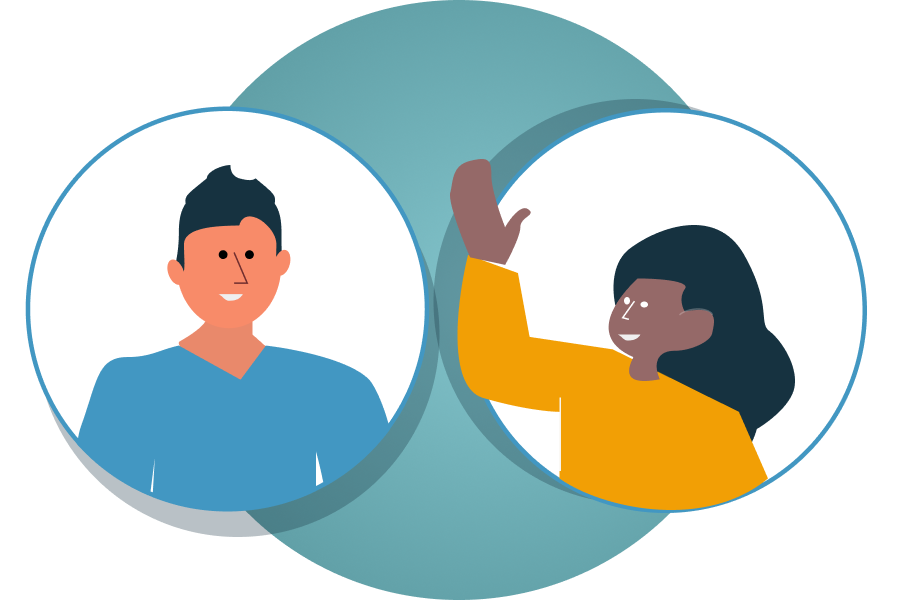Get help for Relationship Issues
Improve your relationship with your partner, family and friends
Are you struggling from problems in your relationships?
In every relationship - whether it’s with a family member, someone you’re dating, your spouse, your friend, or coworkers - it is normal to experience some hurdles at times.
There are many ways in which relationship problems can occur. Every individual has their own opinions, ideas, responses and feelings and it is normal to expect that you will disagree with each other at times.
Although disagreements and conflict are normal, unresolved problems can affect the quality of your relationship and it can worsen over time or lead to further conflict. You may see a rise in tension, have communication issues, loss of trust, decrease in intimacy.
It’s possible to improve the quality of your relationships and learn how to manage relationship conflict and disagreements better through counselling.
“70% of clients seek help to resolve conflicts in their relationships in their marriage, romantic relationships, peer relationships, family relationships.”
Common Signs & Causes of Relationship Conflict
Signs of Relationship Problems:
Anger/ frustration
Avoidance
Arguments
Rethinking/ ruminating about conversations you have had
Jealousy
Spite
Feeling lonely
Feeling upset
Trust Issues
Lack of communication or poor communication
Lack of boundaries or weak boundaries
Feelings of resentment
Decreased intimacy
Infidelity, having an affair
Causes or Sources of Relationship Conflict:
Changes to the family or Environment: Moving to a new city or home, arrival of a new baby, parenting, or new resident in the home, living in close proximity.
Conflict: Differences in interest, opinion and feelings or lifestyle choices.
Control: When someone demonstrates over-controlling behavior or lack of respect of others’ boundaries.
Illness: When someone has a mental, neurological or physical health problem, this can cause strain in a relationship and increase stress and anxiety.
Work: Loss of a job or difficulty in managing work life balance.
Trust: Trust issues may arise due to infidelity or an affair, past trauma, conflict and broken communication.
Addiction: When someone suffers from addiction in smoking, drug taking, alcohol, shopping and gambling, it can lead to negative strain in the relationship.
Money or Financial issues: Financial struggles are a common reason for why relationship problems occur.
Abuse: Emotional and physical abuse leads to high stress levels and many further negative feelings in the victim and others. Feelings such as guilt, anger, loneliness and anxiety can be onset.
Attachment: Attachment theory suggests that our relationship with our parents/ caregivers at a young age can influence our social and emotional development.
Past Experiences: Negative experiences in previous relationships
Self-diagnosis of any mental health condition or illness can be extremely dangerous. This is not intended for use or interpretation as official psychological diagnosis. If you may be struggling with mental health problems or relationship issues, please consider seeking help by booking a consultation with our therapists.
Resolving Relationship Issues in Online Therapy
“Conflict in relationships are inevitable; learning how to resolve conflict, communicate well, build trust and increase understanding are critical to a healthy, happy lasting relationship.”
Our therapists are trained in a range of relationship counselling, such as pre-marital or marital counselling, couples counselling, family counselling, interpersonal/ relationship counselling.
Online Therapy for Relationship issues focus on helping you resolve conflicts and improve the quality of your relationships. It can help you and your partner:
Promote Empathy
Promote Active listening
Promote validating each other’s feelings
Redefining roles and meaning
Increase desired behaviours/cognitions by increasing tolerance and acceptance of the differences
Decrease undesirable behaviours that maintain the reinforce coercion
Improve problem solving skills
Improve communication skills
How it Works
Tell Us Your Needs
Answer a few questions in our intake questionnaire to help us understand your therapy needs, preferences and goals.
Review Your Match
Based on your responses, we will suggest therapists that are best matched to you.
Schedule Your Session
View your therapist’s calendar and schedule your therapy session.
Begin Therapy
We’ll send you a reminder before each session. Find a quiet and private space, get comfortable and start online therapy.






